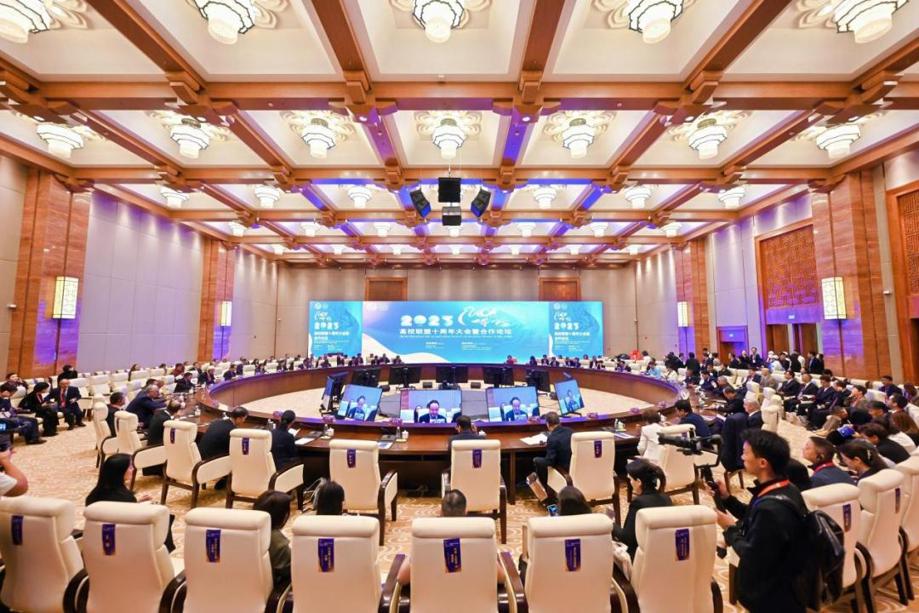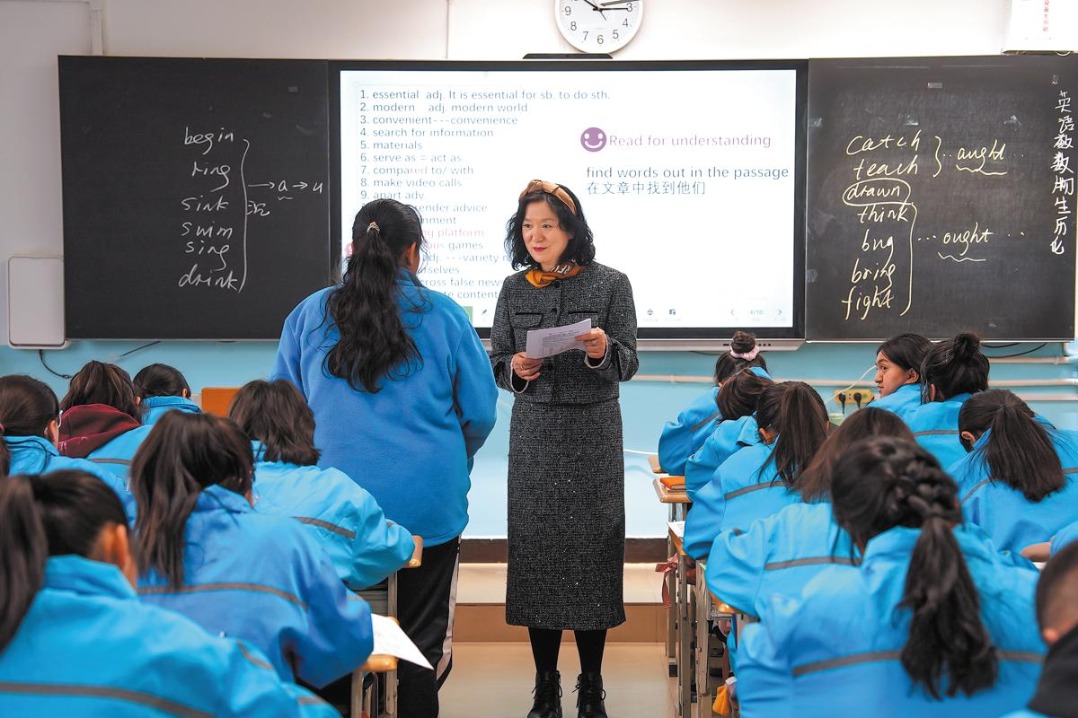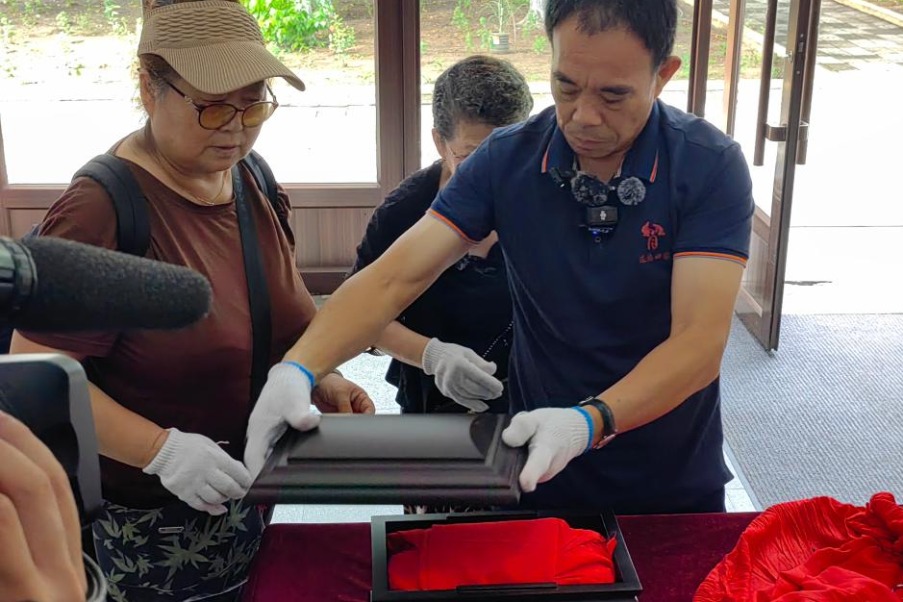BRI university alliance hails 10th anniversary with new vision


Participants in the Belt and Road Initiative university alliance celebrated its 10th anniversary by not only reflecting on its decade-long legacy but also envisioning a new direction for its future.
"The (alliance) has demonstrated that knowledge can be the most powerful force for peace, prosperity and sustainable development," says Quaid-i-Azam University professor and Pakistan Academy of Sciences fellow, Mushtaq Ahmed at the opening of the 2025 Alliance of Belt and Road Universities Anniversary Summit on Monday.
The event held in Dunhuang in Northwest China's Gansu province brought together nearly 200 representatives from more than 20 countries, including Russia, Pakistan, Uzbekistan, Kazakhstan and Croatia. They reviewed the alliance's achievements over the past decade and discussed future cooperation in international education.
The summit cohosted by Lanzhou University was attended by scholars and senior officials, including He Wei, deputy head of the Gansu Provincial Committee of the Chinese People's Political Consultative Conference; Ma Xiaojie, Party chief of Lanzhou University; and Zhao Lei, deputy director-general of the department of international cooperation and exchanges of the Ministry of Education.
Zhao Lei emphasized that educational cooperation within the Belt and Road Initiative has yielded remarkable results, forming "five golden name cards". These are higher, vocational, teacher and digital education, and student exchanges.
"As the alliance steps into its next decade, we hope it will further serve as a platform to promote higher-quality and more sustainable educational exchanges," he says.
He Wei called on alliance members to jointly build talent cultivation, strengthen research collaboration on such global issues as ecological protection and low-carbon transformation, and expand academic cooperation in student and faculty exchanges and joint programs.
Ma says that higher education serves as a bridge for people-to-people and technological exchanges.
"We should promote mutual recognition of academic degrees, credit transfers and open courses, and jointly develop digital-education resources," he says.
The summit also recognized outstanding contributors to international education cooperation.
Lanzhou University professors Long Ruijun and Xiong Youcai were awarded for their achievements in ecological and agricultural cooperation, and rectors from Uzbekistan and Kazakhstan received international-partnership awards.
Lanzhou University signed membership agreements with several new institutions from Nigeria, Uzbekistan, Kazakhstan and Russia, expanding the alliance's global network.
Two new sub-alliances — Culture and Tourism, and Green Development — were launched during the forum. They aim to enhance collaboration in cultural heritage protection, cross-border tourism-talent training, ecological conservation and green-energy technology.
The Dunhuang Consensus 2025 was released as an outcome document, outlining a shared vision for deeper cooperation in civilization exchange and knowledge sharing.
Parallel sessions were held on such topics as renewable energy and carbon neutrality, AI-driven higher education innovation, climate change and food security, and international Chinese-language education.
Initiated in 2015 by Lanzhou University and 47 universities from eight countries and regions, the alliance today includes 197 member institutions from 27 countries and regions, forming an extensive network of higher education collaboration spanning Asia, Europe, Africa and the Americas.
- BRI university alliance hails 10th anniversary with new vision
- Hainan mobilizes safety measures ahead of Super Typhoon Ragasa
- Conference showcases China's advances in BCI technology
- Shanghai marks 1-year countdown to 48th WorldSkills contest
- Officials rule out foul play in Xishui food-poisoning incident
- China drives low-carbon transportation growth in 5 years





































